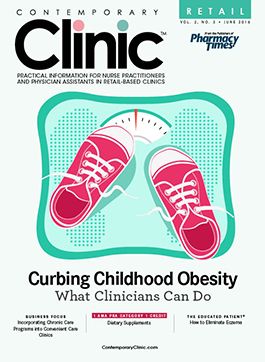Expanding Educational Opportunities for Retail Health Providers
The Convenient Healthcare and Pharmacy Collaborative is the only educational and networking event that brings together the true heart and soul of retail health: the nurse practitioner, physician assistant, and pharmacist leaders on the front lines.
In just 2 months, we’ll convene in Orlando for the 2ndannualConvenient Healthcare and Pharmacy Collaborative (CHPC), which is being held fromJuly 19-21, 2016,at the Hilton Orlando Bonnet Creek Resort. This conference is the only educational and networking event that brings together the true heart and soul of retail health: the nurse practitioner, physician assistant, and pharmacist leaders on the front lines.
The retail health industry has always been forward-thinking and brings innovation to health care. From expanded access to basic primary care in convenient, nontraditional medical settings, to providing excellent patient experiences while delivering care through non-physician providers, retail health continually meets the needs of patients and consumers in ways that the traditional medical community had not done prior to the proliferation of this new delivery setting. As such, it’s no surprise that 6 years after the release of the Institute for Medicine’sFuture of Nursingreport, and even as new recommendations are being made, the retail health industry has already begun implementing educational and leadership programs similar to those outlined in the new recommendations.
In December 2015, an assessment of the 2010Future of Nursingreport suggested that there should be expanded efforts and opportunities to support interprofessional collaboration and opportunities for nurses (and other advanced providers) to design, implement, and diffuse collaborative programs in care and delivery; promote the involvement of nurses in the redesign of care delivery and payment systems; grow programs and courses in leadership, entrepreneurship, and management; promote interprofessional approaches to education with a focus on leadership; and support continuing competence in leadership skills.
Through residency programs, scholarship opportunities, clinical rotations, and ongoing clinical education at retail clinics, nurse practitioners, physician assistants, pharmacists, and students are exposed to leadership and interdisciplinary education, a collaborative practice environment, business management and entrepreneurship skills, and practical clinical training. Programs and educational opportunities such as those offered by clinic organizations and at CHPC enable retail heath providers to continue to improve patient care and outcomes while expanding access to affordable, high-quality health care.
As the retail health industry continues to foster ongoing innovation and professional development, it will lead the charge and provide a road map for other health care professionals and educators to make progress toward the 2010Future of Nursingassessment’s recommendations. CHPC is a venue for such professional development, and the agenda for the clinical and leadership sessions is now available atpharmacytimes.org/chpc16. We encourage you to take a look and register for this dynamic conference if you haven’t already done so.
Thank you for all that you do, and I look forward to seeing you at CHPC 2016!
Tine Hansen-Turton serves as the founding executive director for the Convenient Care Association (CCA), the national trade association for the over 2000 private-sector retail clinics industry, which serves millions of individuals with basic health care services across the country, and has been coined by Harvard professor Clayton Christensen as a “disruptive health innovation.” She assists CCA with business and programmatic strategy, development, coordination and implementation, policy development, and state and national advocacy.

Knock Out Aches and Pains From Cold
October 30th 2019The symptoms associated with colds, most commonly congestion, coughing, sneezing, and sore throats, are the body's response when a virus exerts its effects on the immune system. Cold symptoms peak at about 1 to 2 days and last 7 to 10 days but can last up to 3 weeks.
COPD: Should a Clinician Treat or Refer?
October 27th 2019The Global Initiative for Chronic Obstructive Lung Disease (GOLD) defines the condition as follows: “COPD is a common, preventable, and treatable disease that is characterized by persistent respiratory symptoms and airflow limitation that is due to airway and/or alveolar abnormalities usually caused by significant exposure to noxious particles or gases.â€
Diabetic Ketoacidosis Is Preventable With Proper Treatment
October 24th 2019Cancer, diabetes, and heart disease account for a large portion of the $3.3 trillion annual US health care expenditures. In fact, 90% of these expenditures are due to chronic conditions. About 23 million people in the United States have diabetes, 7 million have undiagnosed diabetes, and 83 million have prediabetes.
What Are the Latest Influenza Vaccine Recommendations?
October 21st 2019Clinicians should recommend routine yearly influenza vaccinations for everyone 6 months or older who has no contraindications for the 2019-2020 influenza season starting at the end of October, according to the Advisory Committee on Immunization Practices.
What Is the Best Way to Treat Pharyngitis?
October 18th 2019There are many different causes of throat discomfort, but patients commonly associate a sore throat with an infection and may think that they need antibiotics. This unfortunately leads to unnecessary antibiotic prescribing when clinicians do not apply evidence-based practice.
